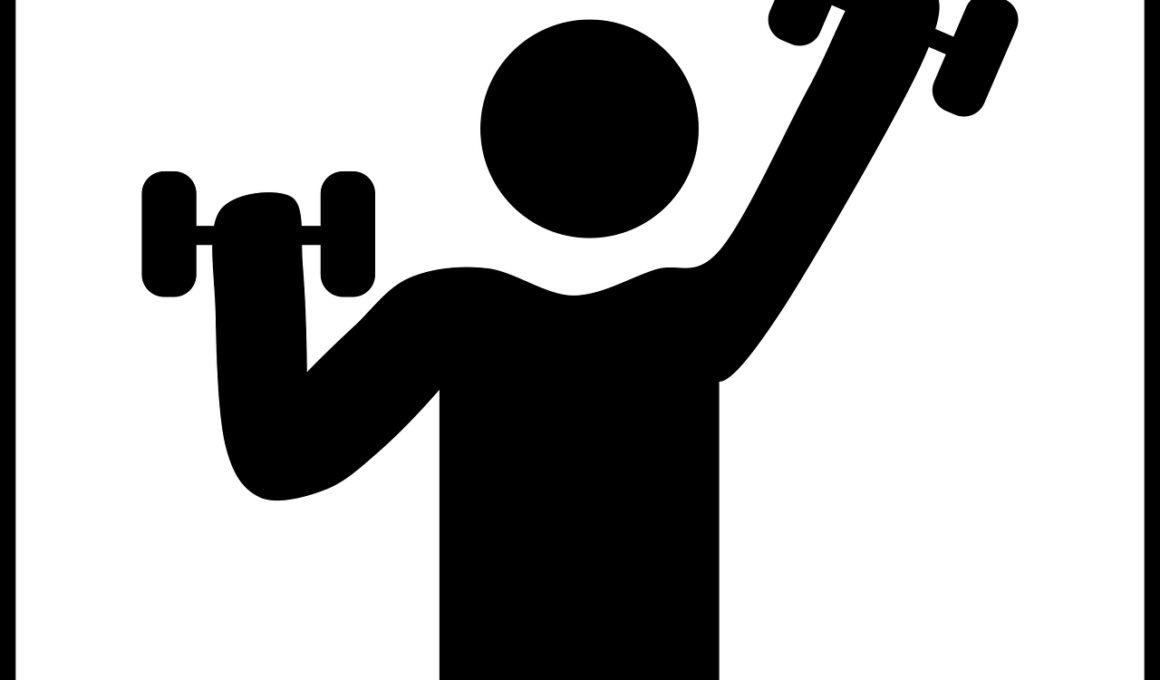Respecting Venue Rules and Regulations During Events
When participating in competitions or challenges at a gym, it’s vital to understand and respect the venue’s rules and regulations. Following these guidelines ensures a smooth, enjoyable experience not only for yourself but for fellow competitors as well. Each gym may have its own set of rules, which can cover everything from equipment usage to specific behavior during the event. If you are unfamiliar with the rules, take the time to ask event organizers or staff for clarification. Complying with the regulations symbolizes respect for the venue, staff, and other participants. Furthermore, honoring these rules can enhance your competitive experience by reducing the likelihood of distractions or misunderstandings. Remember to familiarize yourself with the specific rules pertaining to your event to avoid penalties that could affect your performance. It’s crucial to also respect the time allocated for each competitor, maintaining the event’s schedule is essential to ensure everyone gets a fair opportunity. When everyone participates within the set framework, it builds a healthier, more positive atmosphere, fostering sportsmanship and teamwork. Attending pre-event briefings can also be beneficial for better understanding specific guidelines.
Moreover, paying attention to the venue’s hours of operation is another vital aspect of gym etiquette during competitions. Arriving on time not only allows you to warm up properly but also demonstrates your commitment and professionalism. Most gyms will have a designated check-in area specifically for events, and ensuring you are present can help avoid unnecessary chaos. This is crucial as it allows the organizers to maintain an orderly schedule. If delays occur due to inattentiveness, they potentially affect the entire competition. Respecting the gym’s schedule means being mindful of your arrival and departure timings, thereby contributing to the overall smooth running of the event. In addition, it’s essential to keep in mind that various events may require extensive time for setup and breakdown. Thus, being flexible and accommodating to the venue rules regarding time can lead to a better environment for everyone involved. If any last-minute changes occur, stay updated through your fellow competitors or the event staff for the latest information. It is your responsibility as a competitor to keep an updated awareness of the event schedule and any adjustments along the way.
Equipment Usage and Maintenance
Another critical area of gym etiquette revolves around the usage and care of equipment during competitions. When participating, be sure to respect the equipment, as it is often shared among participants. Each competitor should follow the given instructions regarding how to use machinery and weights properly. Using equipment as intended helps prevent damage and ensures safety for everyone. Also, understand the protocol for equipment maintenance; if you notice something is wrong, notify event staff immediately. Keeping this equipment in good condition is a collective responsibility among all users. It’s also courteous to clean and return equipment to its appropriate place after use, which demonstrates respect for the facility and future gym-goers. Participating in a clean and organized environment sets a great example for fellow competitors and promotes a sense of cooperation. Moreover, avoid monopolizing equipment for prolonged periods, especially when others are waiting to use it. Time management during workouts is essential, particularly when the event has a tight schedule. Make sure to communicate with fellow competitors about sharing equipment to maximize participation and enhance the competitive camaraderie.
Furthermore, it is essential to dress appropriately according to the venue standards when entering the gym for a competition. Each venue might implement specific dress codes that align with their branding and the event type. Adhering to these guidelines reflects your understanding of the environment and professionalism. Professional athletic wear not only supports performance but also presents a unified image among competitors. It may also help avoid distractions, allowing participants to focus on their performance without undue attention on inappropriate attire. If you are unsure about the dress code, checking with event organizers beforehand can avoid issues. Dress codes may include requirements for footwear, tops, or any additional limits, such as avoiding jewelry that could pose a safety hazard. Dressing in alignment with venue expectations demonstrates respect for the traditions of sports culture. It’s essential to remember that your image as an athlete directly reflects on your attitude toward discipline and commitment. Always prioritize comfort mixed with adherence to any guidelines, which can significantly influence your mental state during competitions.
Behavioral Conduct and Sportsmanship
Exhibiting proper behavioral conduct is paramount to uphold gym etiquette during competitions. Every competitor participates not only to showcase their skills but also represents a larger community. The approach you take can influence others, so it is important to carry yourself with integrity. Cheer on fellow competitors and offer encouragement where needed, displaying good sportsmanship at all times. Inevitably, there will be a mix of triumphs and setbacks, and maintaining a positive attitude regardless of your outcome will enhance the overall atmosphere. Always celebrate the successes of others, as this fosters supportive relationships and a sense of belonging within the competition. On the flip side, handling losses gracefully is just as crucial; avoid any behavior that may be disruptive or disrespectful. Such actions reflect poorly not only on you but also on the entire community. Participants focusing on camaraderie over rivalry create an enjoyable experience for everyone involved. After the event concludes, much can be learned from constructive feedback. Building relationships with other athletes can be just as valuable as winning. Engaging in open dialogues post-event may allow for exchanges of ideas and the chance to learn from one another.
Additionally, familiarity with the competition layout and rules can significantly ease the process. As many events occur in large facilities or gyms, understanding the layout beforehand helps in navigating smoothly. Utilizing maps or resources provided by event organizers can open avenues for efficient movement between warm-up areas, competition zones, and practice spaces. Being aware of essential locations, such as bathrooms, medical assistance, and refreshment areas, can minimize downtime during the event. Coordination with teammates or coaches can further enhance readiness for proper transitions through the gym. Communicating within your circle can help build strategies, making the day more fluid and less stressful. Maintaining a focus on aspects you can control—such as your warm-up regimen—can lead to performance peaks. By preparing in advance, you also position yourself to respect the time reserved for others competing, which upholds the overall discipline of the environment. The more organized you are, the better equipped you will be to tackle challenges thrown your way during competitions, allowing you to perform to the best of your ability while respecting all venue regulations.
Engagement with Event Staff and Officials
Last but not least, engaging positively with event staff and officials is crucial for any competitor. They play an essential role in running competitions smoothly, and creating a respectful interaction goes a long way. Thanking volunteers and staff for their hard work can establish rapport and build a spirit of appreciation that lasts beyond the event. When addressing dilemmas or inquiries regarding the competition, it’s vital to approach officials with politeness and patience. They are invested in ensuring a positive experience for all participants and rely on constructive dialogue for further understanding. This respect solidifies a sense of teamwork, even among competitors who may be vying for the same title. Keep in mind that maintaining a respectful tone during disputes or feedback is key to upholding the competition’s integrity. Additionally, fostering a collaborative atmosphere can enhance everyone’s experience at the event. Demonstrating courtesy and appreciation can illuminate the significance of teamwork and respect in sports. Ultimately, how you relate to officials can lead to a more enriched competitive atmosphere, reflecting positively on your character as a competitor.
In conclusion, respecting venue rules and regulations during competitions or challenges is a fundamental aspect of gym etiquette that every participant should prioritize. Every competitor has a responsibility to uphold standards not just for themselves, but for the entire community. Fostering a healthy competitive spirit—balancing respect for the venue, fellow athletes, staff, and officials—creates an environment where everyone can thrive. Carrying out actions, such as dressing appropriately, using equipment responsibly, and engaging positively with others, contributes to the collective well-being on the competition day. Furthermore, managing time effectively and staying aware of venue operations will ensure a seamless experience across the event. Remember that your conduct and approach form a reflection of your commitment and professionalism toward the sport. Encouraging positive engagement amplifies your growth as both an athlete and an individual. The lessons learned through following gym etiquette extend far beyond the competition, enriching your personal development in sports and life. By acknowledging the shared values rooted in respect and sportsmanship, you can help mold a conducive atmosphere that encourages excellence for all participants involved.


